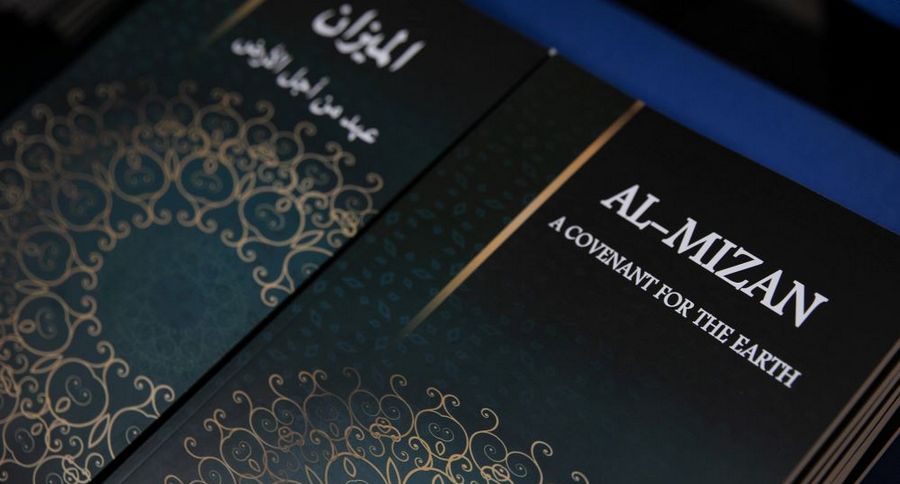“Al-Mizan. A Covenant for the Earth” is an Islamic perspective on the environment, revealing the great potential of Islam to address the world’s environmental challenges.
This document was developed in 2024 through the Faith for the Earth Coalition of the United Nations Environment Programme (UNEP), when leading Islamic organisations and scholars came together to compile the collective voice of the Muslim community. The document adopts Islamic views on nature and links environmental issues to the teachings of Islam. It is both a manifestation of how the Islamic tradition can foster sustainable development and care for the environment, and a call to the Muslim community to integrate sustainability into their daily lives.
Ecology is deeply rooted in the tenets of Islam; in the Holy Qur’an and in the sayings and deeds of the Prophet (the Hadith). The Al-Mizan Pact responds to the major environmental challenges of today, such as climate change, loss of biodiversity and all that the human legacy has caused in the “global village” where great ecological and social injustice prevails today.
Corruption has appeared on the land and in the sea because of what men’s hands have done, so that He may let them taste some consequences of their deeds, so that they may turn back. (30:41).
On this Qur’anic verse, Al-Mizan sets out a hope for improving the world in which we live, from an approach in which the Islamic faith instructs a more responsible way of relating to the Earth.
The document is a very revealing reflection. It presents the ethics of Islam, with concepts such as Tawhīd, or oneness of God; Ummah, or community; Khilāfah fī ‘l-Ard, or responsibility for the Earth, or Al-Mīzān, which refers to balance, reciprocity and equilibrium, among other Islamic concepts. In turn, the document manages to connect the teachings of Islam with urgent aspects of caring for the environment in today’s world. This is done on the basis of concepts such as the prohibition of ribā, i.e. usury or unfair and abusive profits made in trade, as well as iqtisād, meaning prudence, moderation and conservation. These Islamic principles relate to equity, fairness and justice, and could contribute to the construction of a global ecological ethic.
The last chapter of the Al-Mizan Pact compiles a series of principles and practices for caring for the Earth. Interesting reflections can be found on conservation methods, protection of natural spaces, animal welfare, the food system and many others. Special attention is also given to ethical environmental policies based on the Sharī’ah to ensure the good and avoid the bad. All in all, “Al-Mizan – A Covenant for the Earth” is a teaching on the value of Islam in addressing environmental issues and achieving harmony with the environment.
The document closes with the following sentence:
We ask the Lord of all beings to guide us – all of humankind – to mend the devastation in the Earth that we, as a species and as individuals, have wrought, to cease distorting His creation, to return to the natural way of God on which He originated us, and to bear in mind that “The servants of the All-Merciful are those who walk gently on the Earth…” (25:63).
We ask the Lord of all beings to guide us a right to care for this beautiful, glorious Earth and all that live on it – and to help us remember, show gratitude, and render devotion most beautiful.
References
Othman Llewellyn, Fazlun Khalid y otros. Al-Mizan: Covenant for the Earth. The Islamic Foundation for Ecology and Environmental Sciences, Birmingham, UK, 2024.
Access the full document: Home | Al Mizan
This post is available in: English Español


